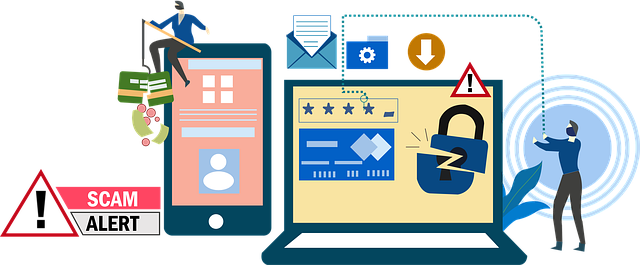Student housing scams are prevalent in areas with high college populations, involving fraudulent listings, rent-to-own schemes, and suspicious security deposits. Protect yourself by avoiding unusually low prices, unfavorable lease terms, and unexpected significant security deposits. Thoroughly research listings, property managers, and landlords; verify contact information; and check online reviews. Be cautious of false ads with unrealistic promises or urgent language. Familiarize yourself with landlord-tenant laws and local tenancy boards to understand your rights. Report suspected scams to law enforcement or consumer protection agencies for a safer housing environment.
As a student, finding affordable and safe accommodation can be challenging, especially in competitive markets. This guide is your compass in navigating the complex world of student housing rentals, with a focus on avoiding common scams that prey on unsuspecting students. From understanding the various schemes to recognizing red flags and knowing your legal rights, equip yourself with knowledge to make informed decisions and stay protected from student housing scams.
- Understanding Student Housing Scams: Common Types and Red Flags
- Researching Your Options: Legitimate vs. Suspicious Listings
- Protecting Your Personal Information: Safety Measures When Renting
- Spotting False Advertisements: What to Look Out For
- Legal Rights as a Tenant: Know Your Protection
- Reporting Scams and Fraud: Taking Action Against Criminal Activities
Understanding Student Housing Scams: Common Types and Red Flags

Student housing scams are prevalent, especially in areas with high concentrations of colleges and universities. Understanding common types and red flags is crucial to protecting yourself. One of the most frequent scams involves fraudulent listings on online platforms, where scammers mimic legitimate property owners, luring unsuspecting students with promises of affordable off-campus accommodation. These listings often appear too good to be true, featuring unusually low prices or bonus perks.
Another common scam involves rent-to-own schemes, where landlords falsely offer lease agreements that allow tenants to eventually purchase the property. In reality, these leases come with exorbitant rent increases and unfavorable terms, making it difficult for students to break even or maintain long-term housing stability. Additionally, be wary of landlords who request pre-payment of a significant security deposit without providing a clear explanation or written confirmation of its usage.
Researching Your Options: Legitimate vs. Suspicious Listings

When searching for student housing, it’s crucial to approach listings with a critical eye, especially in popular cities where scams are more prevalent. Start by comparing different options and scrutinizing each listing carefully. Look out for red flags like unusually low prices, lack of detailed information, or pressure to make instant decisions. Legitimate properties will typically provide comprehensive descriptions, clear photos, and contact details that match the area’s standard rental practices.
Take your time to research the property management company or individual landlord associated with the listing. Check online reviews, reach out to previous tenants (if possible), and verify their credentials. Remember, if a deal seems too good to be true, it likely is. By being vigilant and doing your due diligence, you can avoid student housing scams and find safe, affordable accommodations for your academic journey.
Protecting Your Personal Information: Safety Measures When Renting

When looking for student housing, especially through online platforms, it’s crucial to prioritize your digital safety and protect your personal information from prying eyes or malicious intent. Scams are prevalent in student housing markets, where desperate students might be vulnerable to deceptive practices. Always be cautious when sharing details like your social security number, bank account information, or even your home address. Legitimate landlords won’t ask for such sensitive data upfront, so if a request seems unusual, verify its authenticity before complying.
Use secure communication channels whenever possible—look for encrypted messaging apps or email services that offer robust privacy settings. Avoid using public Wi-Fi networks to discuss personal or financial matters; instead, opt for private, password-protected connections. Regularly update your antivirus software and be wary of suspicious emails or messages claiming to be from landlords. By taking these precautions, you significantly reduce the risk of falling victim to student housing scams.
Spotting False Advertisements: What to Look Out For

When searching for student housing, it’s crucial to be alert to potential scams. False advertisements are a common tactic used by dishonest landlords or agents to lure unsuspecting students in. These ads often appear on popular rental platforms or social media, promising luxurious living conditions at seemingly too-good-to-be-true prices. Be wary of listings that lack detailed descriptions or photos, as these may be created solely to attract clicks and not reflect the actual property.
Key red flags include extremely low rent for the area, unrealistic amenities or promises of off-campus housing when it’s unclear how this is possible. Phrases like “limited time offer” or “first come, first served” create a sense of urgency, pressuring students to make hasty decisions without proper scrutiny. Always verify the legitimacy of the listing and the person posting it, cross-referencing with trusted sources or local housing guidance services to ensure you’re not falling for a student housing scam.
Legal Rights as a Tenant: Know Your Protection

As a student, navigating student housing can be challenging, especially in competitive markets where scams are prevalent. It’s crucial to understand your legal rights as a tenant to protect yourself from falling victim to student housing scams. Familiarize yourself with landlord-tenant laws and local tenancy boards; these resources provide guidelines on security deposits, rent payments, and maintenance responsibilities. Knowing your rights allows you to recognize unfair practices and hold landlords accountable.
Tenants have the right to safe and habitable living conditions, and many areas offer protections against unreasonable eviction. Be wary of landlords demanding excessive security deposits or asking for personal information beyond what’s necessary. Always get everything in writing—lease agreements, move-in inspections, and any changes to the terms—to avoid disputes later. Understanding your legal framework equips you with the tools to navigate student housing markets securely.
Reporting Scams and Fraud: Taking Action Against Criminal Activities

If you suspect or encounter any student housing scams, it’s crucial to take action and report the activity. Many regions have dedicated authorities and hotlines for reporting fraud and criminal activities, including those related to student housing. Reach out to local law enforcement or consumer protection agencies to file a complaint. These entities can investigate the matter and take appropriate measures against the culprits, helping to protect other students from falling victim.
Additionally, staying informed about common student housing scams empowers you to act swiftly. Share any suspicious listings or experiences with peers and relevant online communities. Word-of-mouth warnings can go a long way in keeping your fellow students safe. Remember, reporting these fraudulent activities contributes to a safer and more transparent rental environment for everyone involved.














